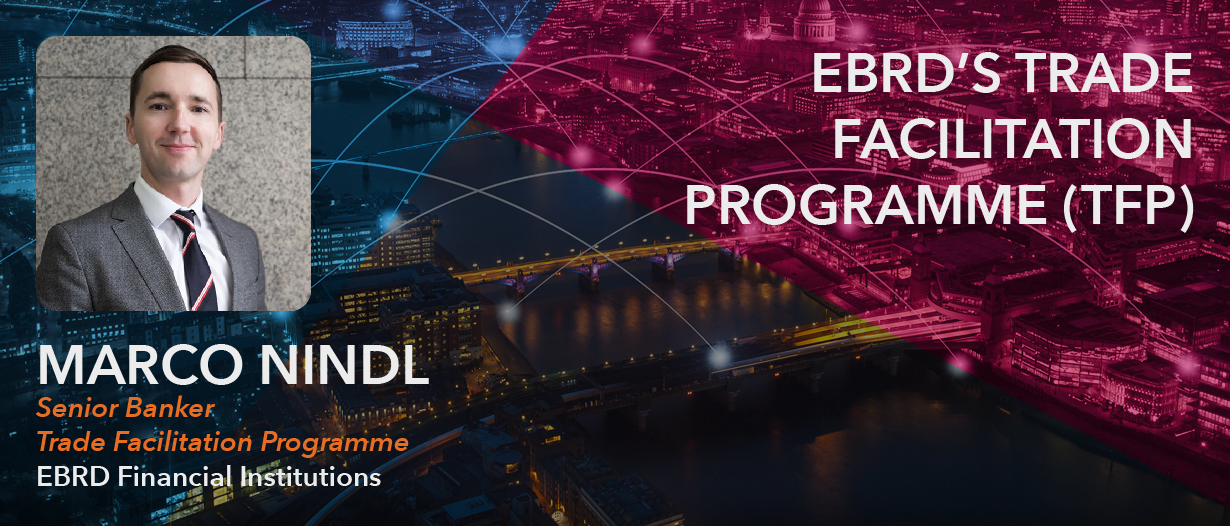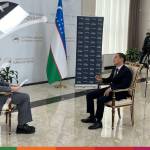The EBRD’s Trade Facilitation Programme (TFP) was developed to promote and facilitate international trade to, from and within economies where the EBRD invests. Under the TFP, guarantees are provided to international commercial banks (confirming banks), thereby covering the political and commercial payment risk of transactions undertaken by issuing banks. Since the TFP programme was initiated in 1999 the EBRD has financed more than 24,000 transactions for a total of more than €19 billion.
At present, there are more than 100 issuing banks in 30 countries participating in the TFP, working with over 800 confirming banks and their subsidiaries throughout the world. Issuing banks in the region participate in the TFP with total limits in excess of €1.5 billion. These instruments issued or guaranteed by participating banks may be secured by guarantees issued under the programme: documentary letters of credit (LCs), trade-related standby LCs, deferred payment LCs, LCs with post-financing, advance payment bonds, payment guarantees, bid and performance bonds, trade-related promissory notes or bills of exchange. The EBRD also extends short-term loans to select banks and factoring companies in its the economies where it invests to fund trade-related advances to local companies for pre-shipment finance, post-shipment finance and other financing for foreign trade contracts and domestic and international factoring.
Achievements in 2018
In 2018, the EBRD’s TFP supported 1,740 trade finance transactions with a record volume of US$ 2.2 billion, compared with 1,359 transactions totalling US$1.9 billion in 2017. This increase was mostly due to a sustained demand for TFP support in the southern and eastern Mediterranean (SEMED) region. In most other regions, notably eastern Europe and the Caucasus, Central Asia and the Western Balkans, local banks reported less demand for trade finance, due to slow economic growth, lack of investment for imported machinery and equipment and the devaluation of local currencies.
Market constraints
The economies in many EBRD countries of operations did not improve in 2018. Subdued economic activity will continue affecting international and domestic trade in these economies in 2019 and beyond. In some countries, economic challenges are combined with a lack of foreign direct investment and long-term funding. At the same time, foreign commercial banks are often reluctant to establish trade finance facilities for smaller and regional TFP partner banks, due to the high capital requirements and the cost of compliance.

Issuing and confirming banks in regions with high country risk claim access to unsecured guarantee lines with long tenors remains limited. In Ukraine, for example, most foreign commercial banks are still unwilling to do any unsecured trade finance activity. The most active confirming banks have reduced their country limits and tenor lengths. EBRD’s TFP facilities support trade flows and encourage confirming banks to maintain relationships with selected partner banks until their commercial trade finance limits are reinstated to suitable levels. TFP carries out regular pricing reviews to reflect country risk issues, market pricing conditions and partner bank needs, including the competitive landscape in a country.
The TFP recorded no defaults in 2018. However, risk-sharing opportunities are continually explored to increase the additionality of the TFP. Through partnerships with commercial banks, private insurance underwriters, investment funds, governments, export credit and development agencies, EBRD can offer tenors and limits not otherwise available.
Development impact
The primary objective of the TFP is to make sure partner banks have trade finance credit lines in place so they can offer trade finance to their clients, regardless of the short-term considerations of commercial banks and their risk appetite. A recent EBRD survey showed 73 per cent of partner banks say they need continuous TFP support for trade finance transactions that foreign commercial banks are unable or unwilling to finance. The survey also found 46 per cent of partner banks (all small and medium-sized banks) need the programme to support most or all of their trade finance transactions.
Promoting sustainable trade finance means improving know-how in partner banks and in the regions. For new partner banks, the TFP provides technical assistance to raise skill levels, tailored to each partner bank. Once basic skills are mastered, training helps staff to work with more advanced products and sustain this level of skill over time. Of the partner banks in the survey, 87 per cent asked for courses to keep up to date with industry developments.
Technical Assistance
In May 2010, the TFP launched a trade finance e-learning programme in cooperation with the ICC and Coastline Solutions to help issuing banks under the TFP achieve the best international practice in trade finance. So far, more than 5,400 specialists from over 340 organisations in 48 economies across eastern Europe, Central Asia and the SEMED region have taken part. In 2018, the programme registered more than 800 new students from 27 countries worldwide. The EBRD’s Trade Facilitation Programme also joined forces with the International Compliance Association (ICA) to offer new training consisting of two internationally recognised qualifications in financial crime compliance to the EBRD partner banks.
The EBRD is a multilateral bank that promotes the development of the private sector and entrepreneurial initiative in 38 economies across three continents. The Bank is owned by 69 countries as well as the EU and the EIB. EBRD investments are aimed at making the economies in its regions competitive, inclusive, well-governed, green, resilient and integrated.

































